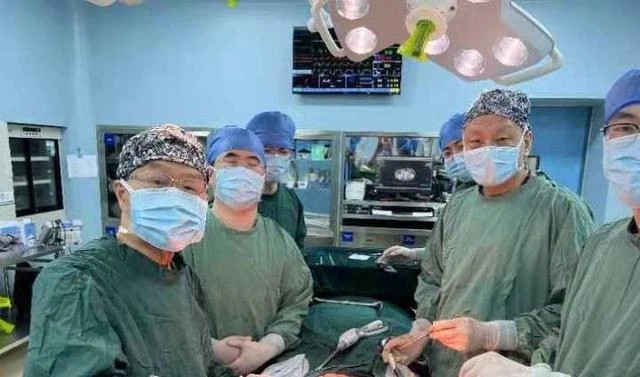At the 7th Annual Meeting of Chinese Medical Scientists held on March 18, Shuyou Peng, the founder of Peng's Multifunctional Operation Dissector (PMOD) and Professor of the Second Affiliated Hospital Zhejiang University School of Medicine, was awarded the honor of "Top Ten Medical Masters". He is an evergreen tree in Chinese medical industry. Even at the age of 90 years, he is still fighting on the clinical front. With superb medical skills, he perform difficult operations for critically ill patients, or fly around the world to participate in various academic exchange activities.

On October 10, 2004, at the 90th American National Surgery Annual Meeting held in New Orleans, USA, Shuyou Peng was awarded the title of Honorary Academician of the American Academy of Surgeons. Shuyou Peng was the fourth Chinese surgeon to receive this honor. The previous three were Professor Wu Jieping of Peking Union Medical College Hospital, Professor Li Guozhang of the Chinese University of Hong Kong and Professor Huang Jianling of the University of Hong Kong.
Georges Mansyan, a professor of surgery at the Central Hospital of Besançon University in France, told Shuyou Peng, "You Chinese are people who are good at creating miracles." This miracle refer to Peng’s multifunctional operation dissector (PMOD), which turned "seven knives and eight scissors" into "one pencil". This pencil is not an ordinary pencil. It went straight to the forbidden area of surgery which turn the previous challenging operation to a routine operation, thus saving countless lives.
In 1987, an ultrasonic scalpel appeared abroad. The principle is to smash the liver tissue. The Second Affiliated Hospital Zhejiang University School of Medicine also bought one for 70,000 US dollars. As a result, Professor Shuyou Peng used it and was greatly disappointed, because Chinese liver cancer patients often have liver cirrhosis, but it’s very slow to crush liver tissue with ultrasonic scalpel, so the effect is not ideal.
Shuyou Peng has always wanted to improve ultrasonic scalpel. One day, he had a whim when he was playing with a ballpoint pen, that is to combine the pen and the metal tube of the stethoscope into a small rake, and experimented with scraping and peeling on the liver tissue. Blood vessels were exposed finally after the liver tissue was peeled off layer by layer. The scraped liver tissue was sucked away with an absorber. In case of small blood vessels, replace the instrument for coagulation. For such a simple traditional surgery, surgeons need to use dozens of instruments, such as scalpels, hemostatic forceps, forceps and so on. Shuyou Peng thought if one instrument can implement all the functions of these instruments, the surgeons would not have to change the surgical instruments frequently during the operation, which would not only shorten the operation time, reduce the patient's blood loss, but also make the surgical vision clearer. When this idea popped out, Shuyou Peng put it into practice immediately. He created a pencil combining the four functions of electrocution, electrocoagulation, suction and peeling. Thus, the scraping and suction surgical dissection method and Peng’s multifunctional operation dissector (PMOD) were born.
Peng’s multifunctional operation dissector (PMOD) changes the surgical methods in the world, making intractable operations in the liver site become routine operations, and some originally impossible operations become feasible.
Peng’s multifunctional operation dissector (PMOD) shorten the operation time by 40%, and reduce the blood loss by 50%. Now Peng’s multifunctional operation dissector (PMOD) has been widely applies to general surgical operations such as liver, gallbladder, pancreas, spleen, stomach, intestine, thyroid, breast, etc.. And it has been extended to the fields of orthopedics, gynecology, urology, ENT, brain surgery and so on. Thanks to Peng’s multifunctional operation dissector (PMOD), many patients who were "sentenced to death" were saved. Many countries such as Britain, the United States, Japan also introduced Peng’s multifunctional operation dissector (PMOD). Foreign experts called this achievement "an epoch-making progress in the field of surgery in the world".

"The pursuit of life is not to conquer, but to fight." This is what Shuyou Peng often used to encourage himself and teach his students. Innovation is the tireless pursuit of this medical expert in his lifetime, and it is also his way of fighting.